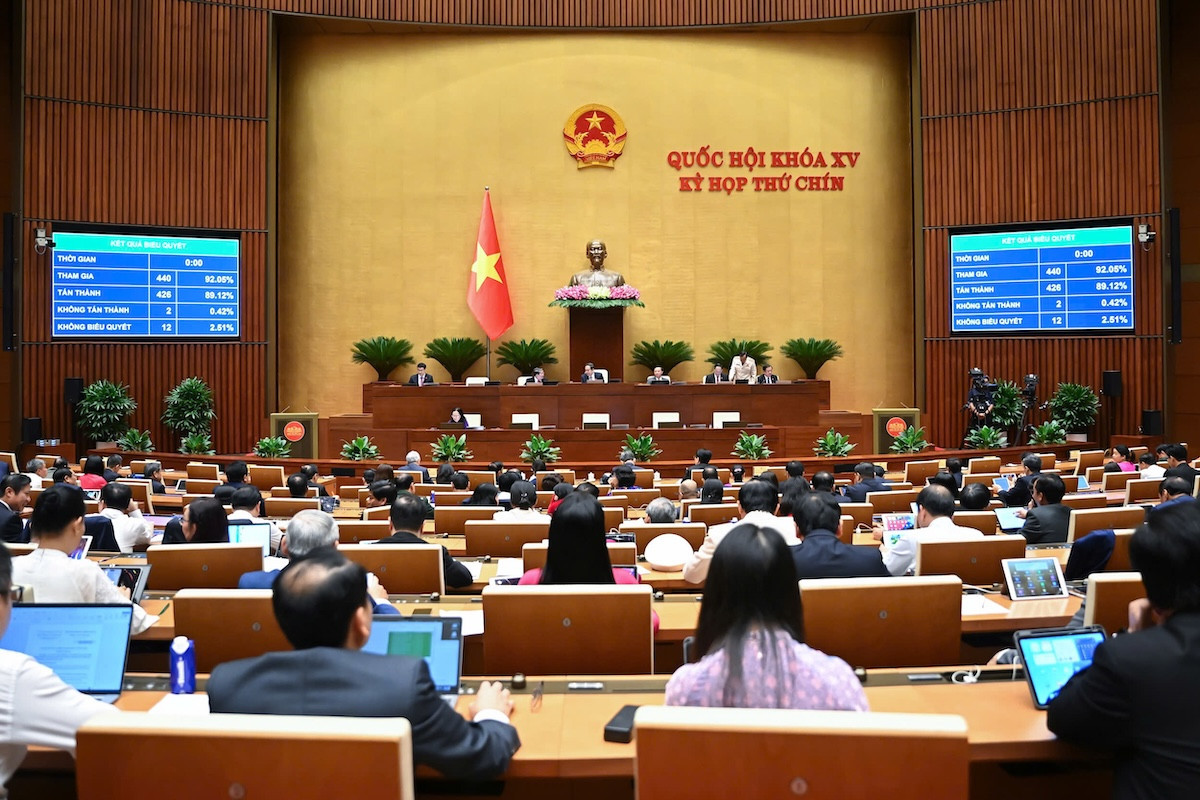With 433 out of 435 deputies voting in favor, Vietnam's National Assembly this morning officially passed the revised Railway Law, introducing a range of special incentives to promote rail development and attract private-sector investment in the industry.

Before the vote, Minister of Construction Tran Hong Minh, authorized by the government, presented a report summarizing the feedback and adjustments made to the draft law.
Minh stated that the draft had received 53 rounds of comments, with one lawmaker submitting written feedback. Most lawmakers expressed strong support for the proposed content, agreeing that the law institutionalizes the Party’s policies on railway investment and development, removes legal bottlenecks in the rail sector, and aligns with the shift toward modern legislative thinking.
"The government reviewed and retained only the framework and principles within the authority of the National Assembly, cutting detailed content. The revised draft law now consists of four chapters and 59 articles - 25 fewer than the original draft submitted by the government," Minh said.
Special incentive policies are defined separately in Section 2, Chapter II, and apply exclusively to major national projects and those approved for investment by the National Assembly.
Incentives to encourage private investment
Regarding support policies, Minh said the law improves and expands incentive measures to mobilize investment resources, develop railway infrastructure and industry, and reinforce railways' central role in Vietnam’s transport network. The law is now more transparent, clear, and practical.
To address difficulties in adjusting plans for major national railway projects, the revised law allows project approval and adjustment - even if discrepancies exist with related plans - without requiring formal changes to other affected plans. Instead, those plans must be updated promptly and disclosed per regulations.
The law emphasizes core management principles such as safety, separation of operations and business, and fair competition. It also clarifies eligibility for incentives and adds mechanisms for National Assembly oversight.
Priority will be given to allocating state budget funds to invest in, upgrade, maintain, and protect national and local railway infrastructure, foster rail industry development, and train human resources. These efforts aim to establish rail as a key mode in the national transportation system, serving economic growth and national defense.
Under the newly approved law, businesses involved in rail operations will benefit from numerous incentives, such as land-use fee exemptions or reductions, access to credit capital, and funding support in economically challenged areas. Enterprises investing in rail industry development or infrastructure management will also enjoy preferential corporate income tax rates.
Additionally, project preparation procedures have been selectively streamlined, and special bidding mechanisms have been introduced to prevent losses and inefficiencies.
The revised Railway Law takes effect on July 1, with several provisions deferred until January 1, 2026, to ensure feasibility in early implementation.
The Vinh